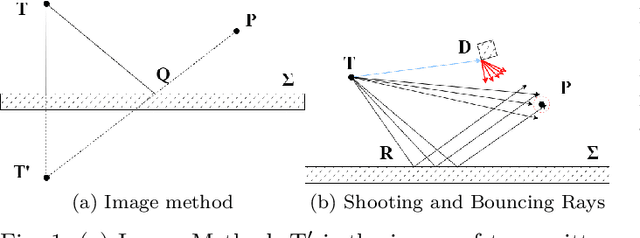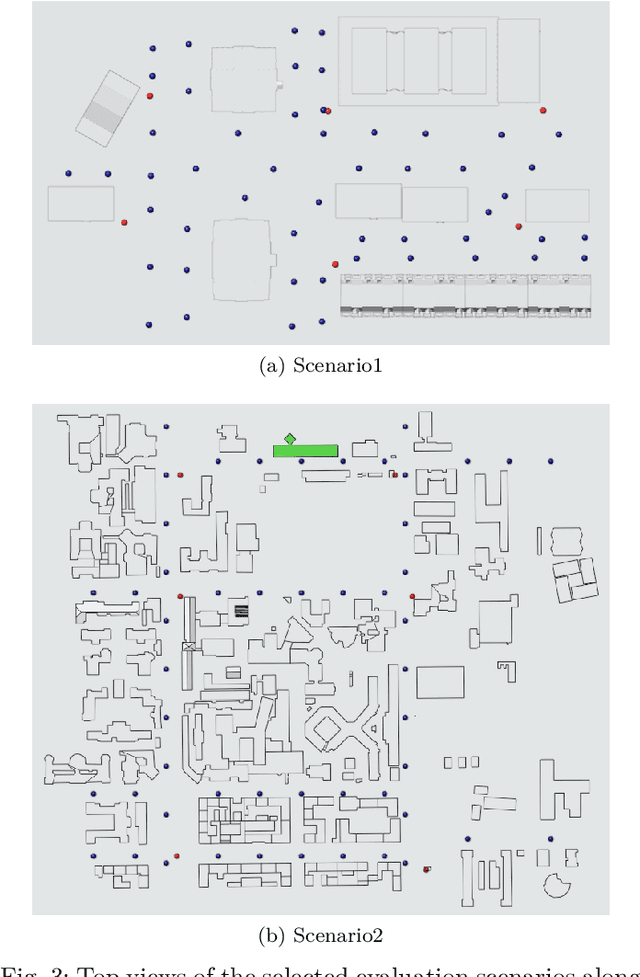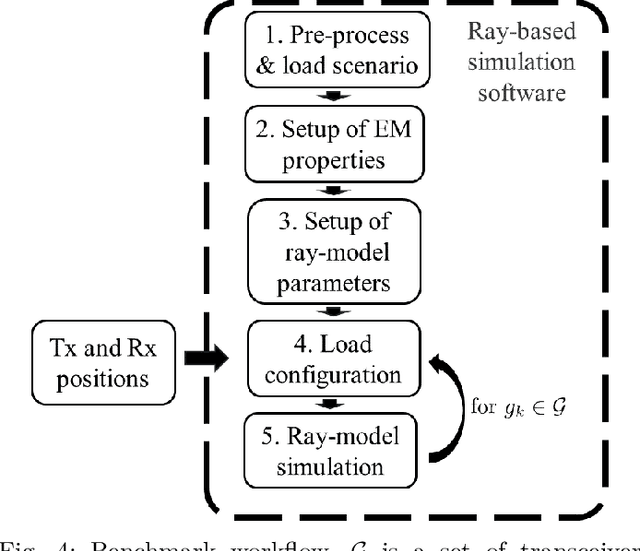Digital Twins of the EM Environment: Benchmark for Ray Launching Models
Paper and Code
Jun 07, 2024



Digital Twin has emerged as a promising paradigm for accurately representing the electromagnetic (EM) wireless environments. The resulting virtual representation of the reality facilitates comprehensive insights into the propagation environment, empowering multi-layer decision-making processes at the physical communication level. This paper investigates the digitization of wireless communication propagation, with particular emphasis on the indispensable aspect of ray-based propagation simulation for real-time Digital Twins. A benchmark for ray-based propagation simulations is presented to evaluate computational time, with two urban scenarios characterized by different mesh complexity, single and multiple wireless link configurations, and simulations with/without diffuse scattering. Exhaustive empirical analyses are performed showing and comparing the behavior of different ray-based solutions. By offering standardized simulations and scenarios, this work provides a technical benchmark for practitioners involved in the implementation of real-time Digital Twins and optimization of ray-based propagation models.
 Add to Chrome
Add to Chrome Add to Firefox
Add to Firefox Add to Edge
Add to Edge